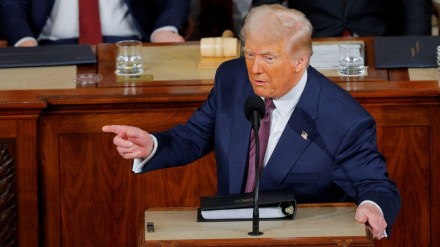The United States has halted intelligence-sharing with Ukraine, CIA Director John Ratcliffe confirmed on Wednesday. This move comes as part of a broader strategy by President Donald Trump to push Ukrainian President Volodymyr Zelenskiy toward peace negotiations with Russia. The suspension follows an earlier decision to halt US military aid to Kyiv, potentially undermining Ukraine’s defences against Russian missile attacks.
Trump’s strategy and Zelenskiy’s response
The pressure appears to be yielding results. On Tuesday, Trump revealed that Zelenskiy had expressed willingness to enter negotiations in a letter. Ratcliffe suggested that intelligence-sharing could resume once peace talks gain momentum, stating, “I think on the military front and the intelligence front, the pause I think will go away.” National Security Adviser Mike Waltz added that the administration may restore assistance if Ukraine agrees to confidence-building measures.
The intelligence-sharing suspension significantly hampers Ukraine’s ability to counter Russian aggression. A source disclosed that the US had halted “everything,” including critical targeting data used against Russian forces. Experts warn that without U.S. intelligence, Ukraine’s response to missile threats and enemy troop movements will be significantly weakened.
The decision has sent shockwaves across Europe, prompting concerns among NATO allies. European nations are reassessing defence strategies as Trump’s approach signals a shift in U.S. foreign policy. His administration has also engaged directly with Russia through diplomatic channels in Saudi Arabia and Turkey, excluding Ukraine and European partners from key discussions.
US-Ukraine minerals deal
Despite tensions, Trump emphasized that Ukraine was close to finalizing a minerals deal with the U.S. to repay past military aid expenses. He also claimed Russia had shown readiness for peace, arguing that dialogue with both sides is crucial to ending the war. However, experts caution that reducing intelligence-sharing could have devastating consequences for Ukraine’s ability to defend itself.
(With Reuters inputs)
